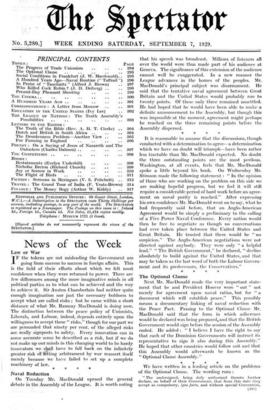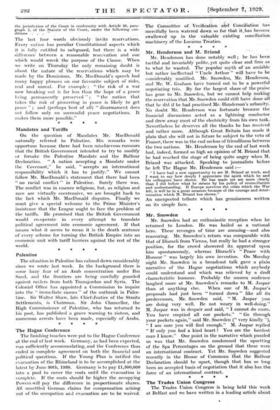We have written in a leading article on the problems
of the Optional Clause. The wording runs : " The undersigned, being duly authorized thereto further declare, on behalf of their Government, that from this date they accept as compulsory, ipso facto, and without special Convention,
the jurisdiction of the Court in conformity with Article 36, para- graph 2, of the Statute of the Court, under the following con- ditions . . .
The last four words obviously invite reservations. Every nation has peculiar Constitutional aspects which it is fully entitled to safeguard, but there is a wide difference between a reasonable reservation and one which would wreck the purpose of the Clause. When we write on Thursday the only remaining doubt is about the nature of the reservations which may be made by the Dominions. Mr. MacDonald's speech had many happy phrases on our favourite subject of risks, real and unreal. For example : " the risk of a war now breaking out is far less than the hope of a peace being permanently preserved " ; " the nation that takes the risk of pioneering in peace is likely to get peace " ; and (perhaps best of all) " disarmament does not follow only on successful peace negotiations. It makes them more possible."

































